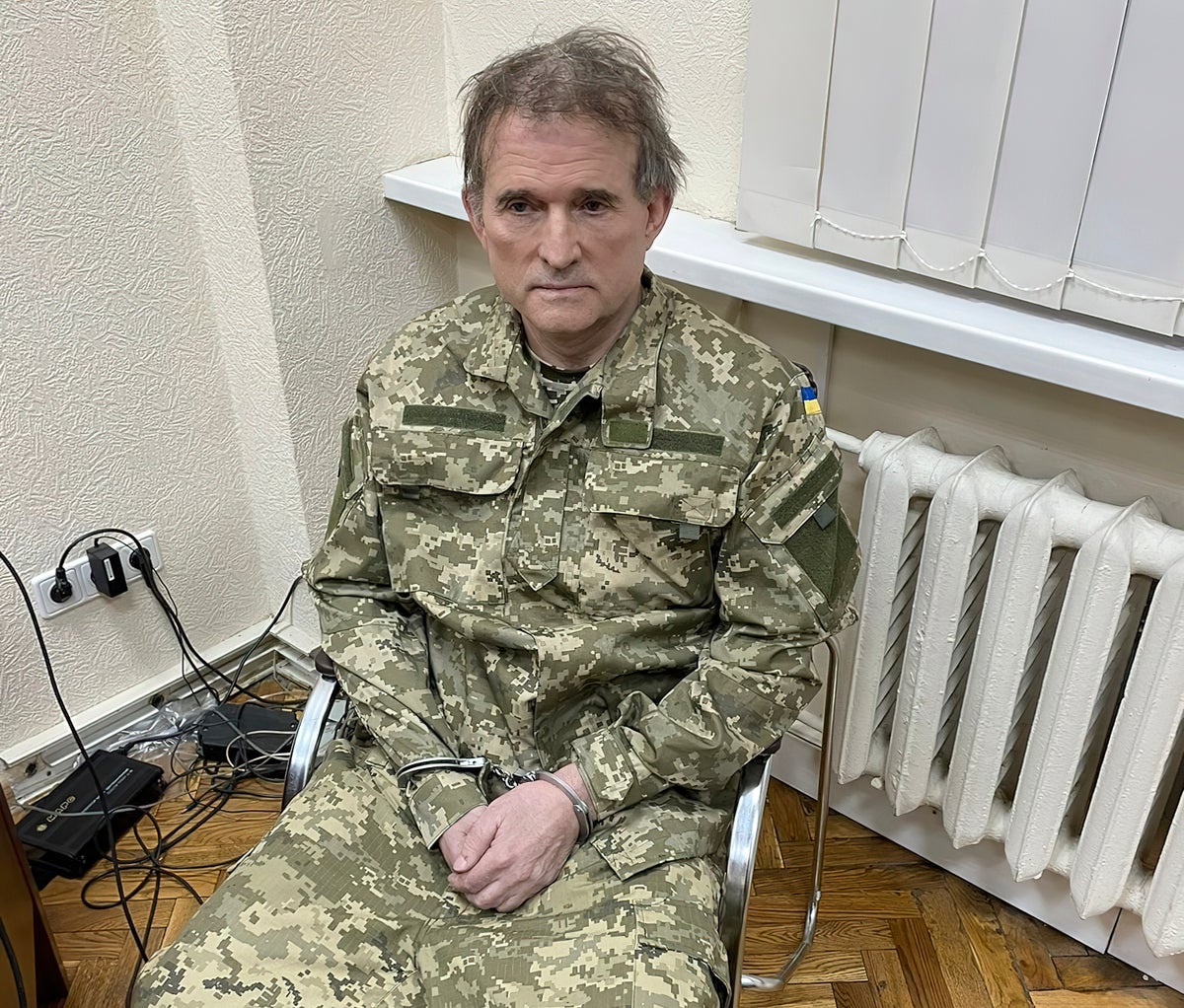
Aiden Aslin and Shaun Pinner were supposed to receive the protection of the Geneva Convention as members of the armed forces of a sovereign country, Ukraine.
They have been sentenced to death after a show trial in the Donetsk People’s Republic (DPR), a “state” recognised only by Vladimir Putin’s Russia.
The fact that Mr Aslin and Mr Pinner are British citizens and a third defendant at the trial, Saadoun Brahim, is a Moroccan national, does not affect their status as prisoners of war.
Prosecutors in the DPR have repeatedly accused the three men of being foreign mercenaries. But all three are signed-up members of the Ukrainian armed forces, and many countries across the world have foreign nationals in the ranks.
This includes Britain, where recruitment is largely restricted to those from the Commonwealth. Russia is among the most welcoming to foreigners in its forces. Citizens of any country, aged between 18 and 30 and with a knowledge of the Russian language can join and they become eligible for Russian citizenship after serving three years.
DPR forces also include foreigners. During a visit there after the separatist war of 2014, I met a Scot (who advocated an independent Donbas but had voted against Scottish independence) and an American from Texas, as well as French, Finnish, Portuguese and Spanish nationals and others from eastern Europe.
Russian news agency Tass reported that the men’s guilt had been proven “based on the analysis of the totality of the evidence”.
What the “evidence” consists of is unknown because the trial took place behind closed doors. Mr Pinner and Mr Brahim allegedly pleaded guilty to “actions aimed at the violent seizure of power”, it was claimed, and Mr Aslin to “illegal use of weapons and explosives”.
In reality, the trial and sentencing in Donetsk is a political rather than a legal issue and the two Britons will undoubtedly be regarded as bargaining counters.
Boris Johnson is “appalled” by the death sentences and “has asked ministers to do everything in their power to try and reunite them with their families as soon as we can”, according to his spokesman. Britain is “prioritising” talking to Ukraine rather than Russia because “we don’t have regular interaction with the Russians”.
The Kremlin holds that it is not Russia that Britain needs to talk to, but the separatists. Foreign ministry spokesperson Maria Zakharova described the British reaction as “hysterical”.
Foreign minister Sergey Lavrov told reporters: “The trials are being held on the basis of the legislation of the Donetsk People’s Republic because the crimes in question were committed on the DPR’s territory. I will not comment on the Donetsk People’s Republic judiciary.”
It would be astonishing if Britain were to negotiate directly with an administration it does not recognise, let alone one that is at war with an ally. So any talks over the release of the two men will be between Volodymyr Zelenesky’s government of Ukraine and the Russians, who regularly liaise on prisoner swaps.
Russian state media has reported that more than 1,000 Ukrainian prisoners who surrendered in Mariupol have been transferred to Russia for “investigation”. Politicians in Moscow and the separatist republics have threatened to carry out “Nuremberg-type” trials of prisoners from the Azov battalion, whom they accuse of being neo-Nazis and fascists.
Ukraine, too, has put Russian servicemen on trial. Courts in Kyiv and near Kharkiv have handed out lengthy sentences – life imprisonment in one case – on war crimes charges. Iryna Venediktova, the country’s prosecutor general, said on Wednesday that she had filed eight more cases for trial.
The Russians and their DPR allies may offer to exchange the two Britons and the Moroccan – as well as others they might put on trial and convict in the future – for detainees held in Ukraine.
Moscow is in a strong position when it comes to negotiations on the exchanges. The total number of Russian soldiers being held by Ukraine has fallen to 550 from 900 in April after a series of exchanges. Russia has more than 5,600 Ukrainian troops in captivity, the figure enlarged by the surrender of 2,500 in Mariupol.
However, Moscow might have someone else in mind for a swap with Mr Aslin and Mr Pinner rather than soldiers. Both the Britons appeared on the state-run Rossiya 24 channel asking Boris Johnson to get them home in exchange for Viktor Medvedchuk, an oligarch with pro-Moscow sympathies who is under arrest in Ukraine.
In the footage, Mr Aslin and Mr Pinner could be seen watching a video of Mr Medvedchuk’s wife Oksana making an appeal for her husband to be exchanged for the two Britons. Mr Aslin says to camera “we look to exchange myself and Aiden Aslin for Mr Medvedchuk. Obviously I would really appreciate your help on this matter.”
The Russians and their proxies had gone to some lengths to orchestrate this. But Mr Medvedchuk is no ordinary pro-Moscow oligarch. Mr Putin is godfather to his daughter Daria and the pair’s friendship goes back two decades. They have holidayed together.
After Mr Medvedchuk was accused of treason and placed under house arrest, and his television station seized by authorities, Mr Putin delivered one of his most aggressive condemnations of Ukraine, accusing it of turning “slowly but steadily into an antipode of Russia, an anti-Russia”.







